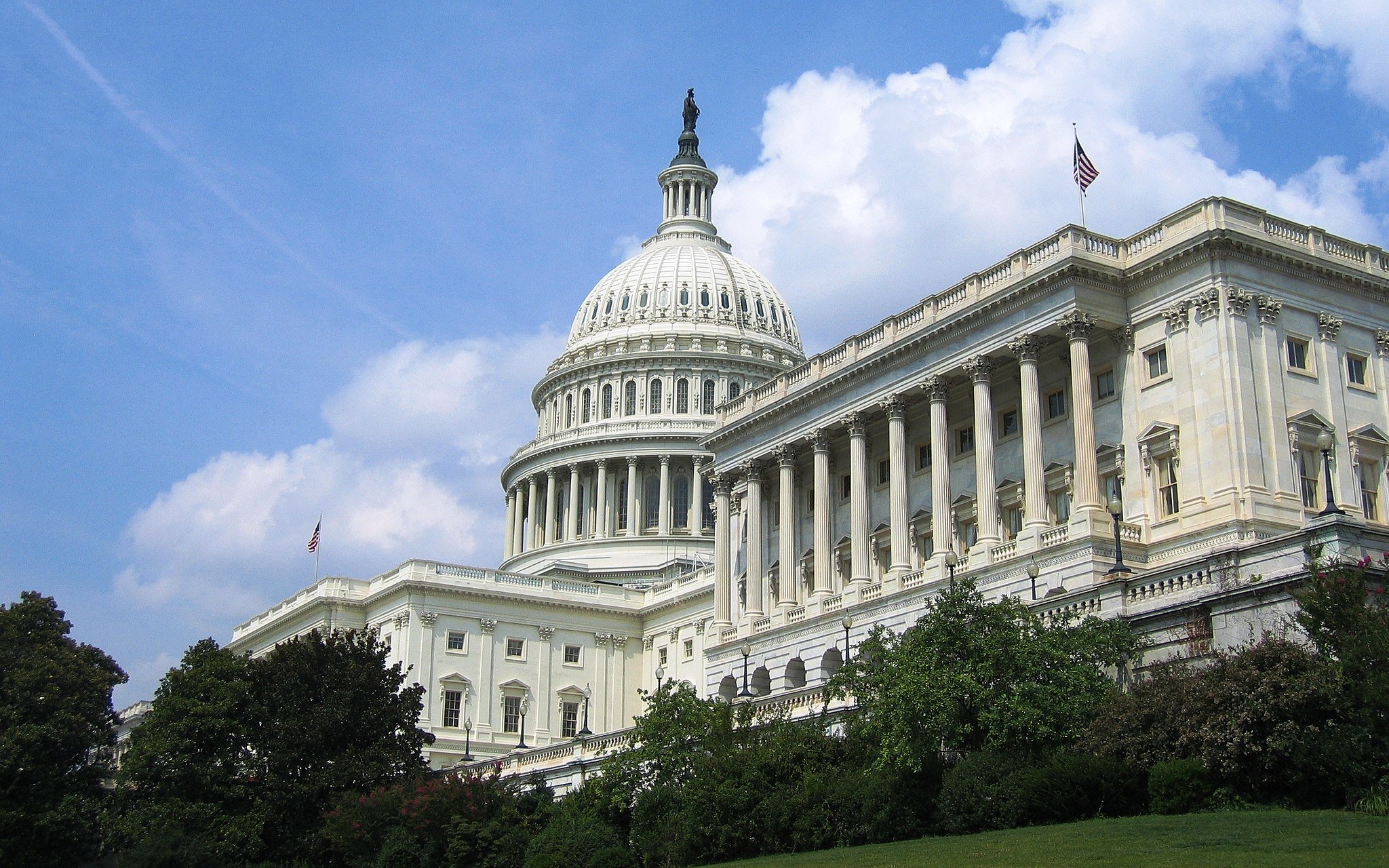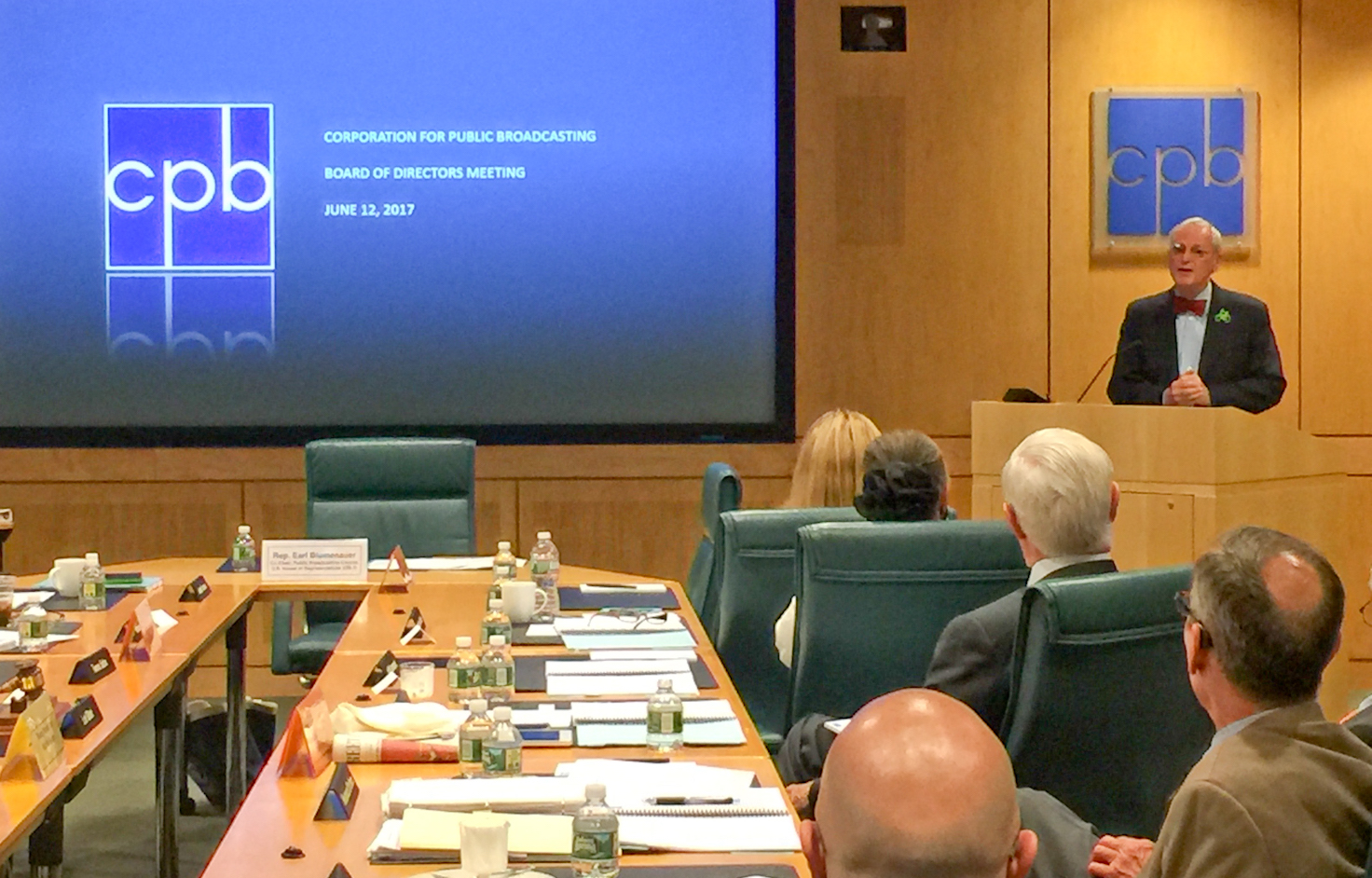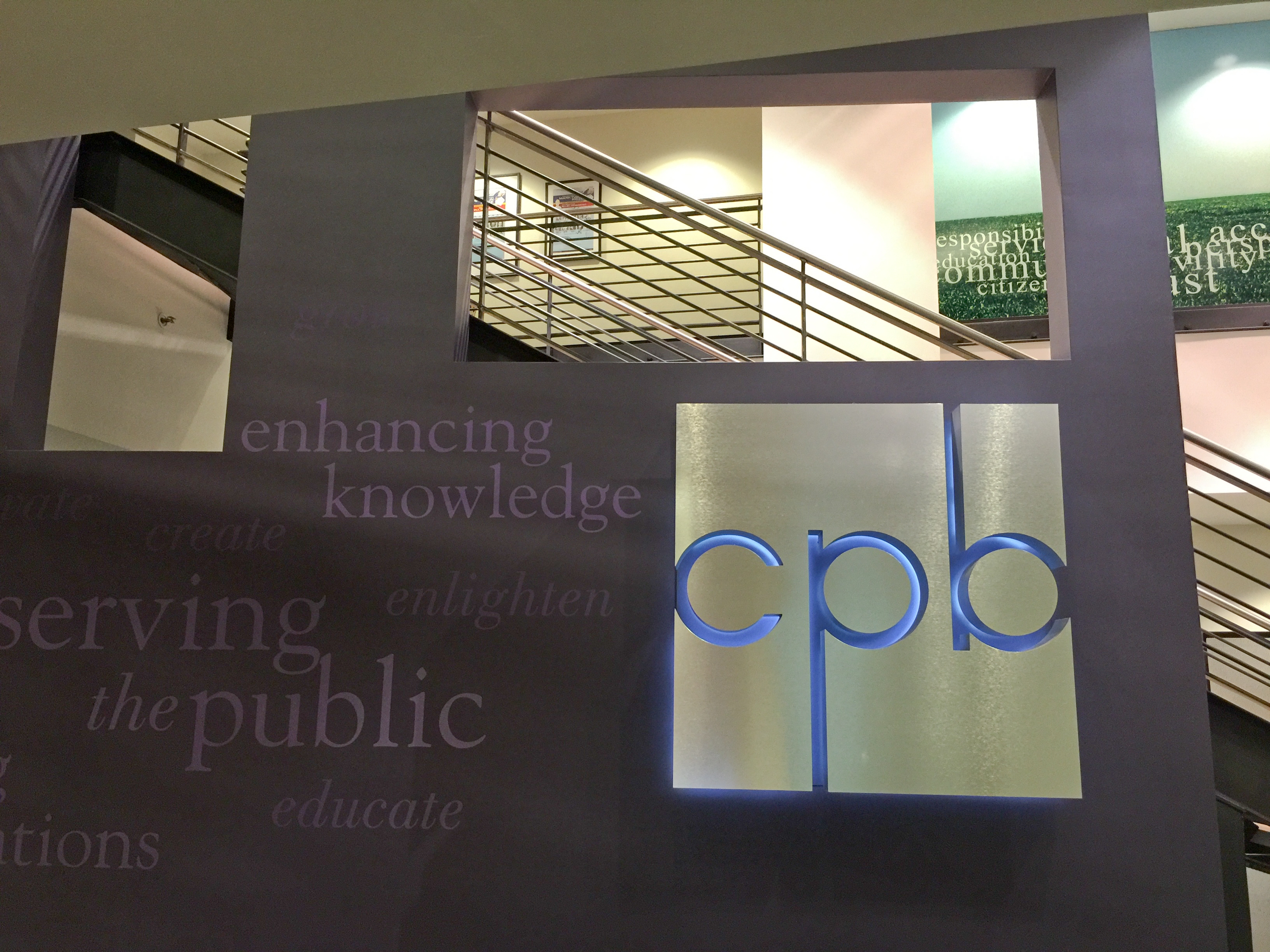Tag: Federal funding
CPB director accuses public broadcasting of ‘identity politics’ in latest op-ed
Howard Husock continues his public criticism of CPB and federal funding for pubcasting.House Appropriations Committee recommends $445M for CPB in 2020
The bill does not include funding for public broadcasting’s interconnection project or public TV’s Ready To Learn.At CPB Board meeting, congressman calls for ‘civil and thoughtful’ advocacy for pubcasting funding
Rep. Earl Blumenauer also told the board that he had asked House Democrats to stop “using the assault on public broadcasting as ...CPB director’s second op-ed against federal funds draws public rebuke from board leaders
Howard Husock’s latest essay appeared Thursday in “The Hill.”CPB director Husock takes more specific swipe at pubcasting funding
“I’ve continued to think about what a post-subsidy system would be like, as a practical matter,” Howard Husock told Current.Big Bird’s finances come under scrutiny at House budget hearing
Where are the tax returns, Big Bird?Trump’s 2018 budget calls for phasing out public broadcasting funds
The $30 million for CPB is intended for “an orderly closeout of federal funding."Latest version of Trump budget reportedly maintains push to end CPB funding
“There is a little money in the budget left to allow us to wind down the federal position,” said OMB director Mick ...Public TV alum ponders ‘sacrifice’ of PBS, NPR funding
"Now, more than ever," federal support is vital, writes a former “NewsHour” executive.End of CPB funding would affect stations of all sizes
Service cuts and adjusting budgets can only go so far, says Station Resource Group co-CEO Tom Thomas.Maryland congressman aims to defund NPR, ITVS
"We could put an end to funding permanently through statute,” says Rep. Andy Harris (R-Md.). “And it’s probably time to do that.”Omnibus bill bumps up FY17 funds for Ready To Learn and arts endowments
Votes are expected before the end of the week.Survey finds strong opposition to cuts in arts, pubmedia funding
The research also found that 37 percent “strongly disagree” with President Trump’s desire to stop funding entities including CPB.Stations shape fundraising pleas amid funding threat, potential auction windfalls
Public television’s spring fundraising rolled out in a heated high-stakes environment for clearly communicating a case for support.More members of Congress sign on to public broadcasting support letter
Seventeen House Republicans are among 166 members of Congress advocating for CPB's appropriation.










